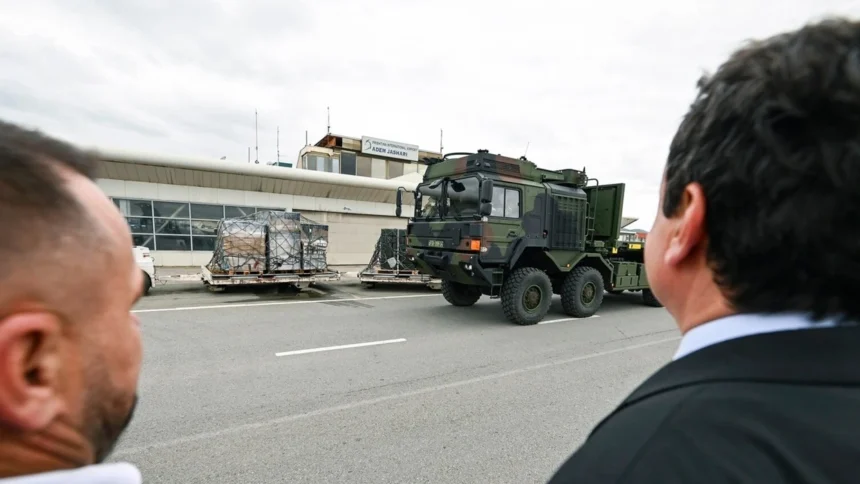NATO has reacted to reports that Kosovo received military drones from Turkey, stressing that any activity in Kosovo’s airspace must be properly coordinated with the NATO-led peacekeeping mission, KFOR, to prevent tensions and guarantee safety, a NATO official told Radio Free Europe.
Kosovo authorities announced on 8 October that they had received “thousands” of combat drones from Turkey — news that drew sharp criticism from neighboring Serbia.
A NATO official described Turkey as an important contributor to the KFOR mission and underlined that KFOR holds authority and responsibility for Kosovo’s airspace under UN Security Council Resolution 1244 (1999). The official said KFOR regularly monitors Kosovo’s airspace and will employ all available means within its mandate. KFOR is also in close contact with Kosovar security institutions and the Serbian armed forces on the matter.
KFOR remains the third security responder in Kosovo — after the Kosovo Police and the EU Rule of Law Mission (EULEX) — and is responsible, among other tasks, for security along the border line between Kosovo and Serbia. NATO increased its presence in Kosovo in 2023 amid rising tensions in the Serb-majority north; KFOR currently numbers 4,649 peacekeepers from 33 countries.
Local security analysts argue Kosovo should develop defensive capabilities. Mentor Vrajolli, director of the Kosovo Centre for Security Studies, told RFE/RL that while Kosovo does not control its airspace, it needs capabilities to defend itself given perceived threats. Vrajolli described the drone deliveries as part of a regional arms dynamic and said Kosovo requires both counter-drone detection and neutralization technologies.
Serbia — which does not recognise Kosovo’s independence — publicly condemned the Turkish delivery. President Aleksandar Vučić described the shipment as a breach of international law and of UN Resolution 1244, and signalled he would raise the issue with Turkish President Recep Tayyip Erdoğan. Serbia’s Ministry of Defence later said the Serbian Chief of General Staff held an urgent call with KFOR’s commander, Major General Özkan Ulutaş, to protest the deliveries.
Kosovo officials specified that they received Skydagger RTF drones (models RTF‑7 and RTF‑15), describing them as defensive systems. Authorities said they accepted “thousands” but did not specify exact numbers. Reported technical details include:
- Skydagger RTF 7: up to 130 km/h, range up to 10 km, max payload ~2 kg, endurance up to 12 minutes with payload.
- Skydagger RTF 15: similar speed and range, payload up to 5 kg, endurance up to 14 minutes with payload.
Officials emphasized that no drones will be flown into neighboring airspace and that KFOR coordination is essential to avoid escalation.
Background context:
- Kosovo has been upgrading its security capabilities in recent years — acquiring Bayraktar drones (2023), U.S.-supplied armoured vehicles and seeking Javelin anti-tank missiles.
- Kosovo’s defence spending and procurement have increased, and the country is in the process of transforming the Kosovo Security Force (FSK) toward a regular army.
- The deliveries come amid heightened regional sensitivities over military buildups and perceptions of asymmetric armament in the Western Balkans.







